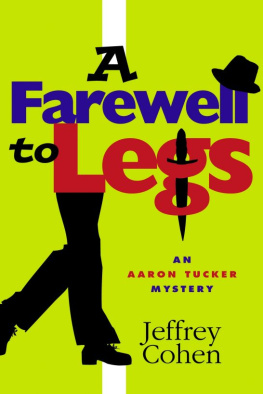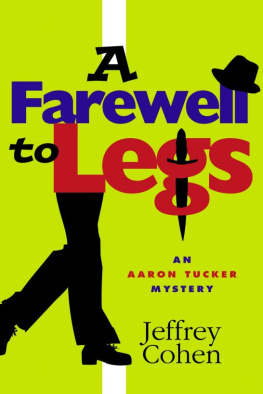Jeffrey Tucker - Right-Wing Collectivism: The Other Threat to Liberty
Here you can read online Jeffrey Tucker - Right-Wing Collectivism: The Other Threat to Liberty full text of the book (entire story) in english for free. Download pdf and epub, get meaning, cover and reviews about this ebook. publisher: Foundation for Economic Education, genre: Politics. Description of the work, (preface) as well as reviews are available. Best literature library LitArk.com created for fans of good reading and offers a wide selection of genres:
Romance novel
Science fiction
Adventure
Detective
Science
History
Home and family
Prose
Art
Politics
Computer
Non-fiction
Religion
Business
Children
Humor
Choose a favorite category and find really read worthwhile books. Enjoy immersion in the world of imagination, feel the emotions of the characters or learn something new for yourself, make an fascinating discovery.
- Book:Right-Wing Collectivism: The Other Threat to Liberty
- Author:
- Publisher:Foundation for Economic Education
- Genre:
- Rating:4 / 5
- Favourites:Add to favourites
- Your mark:
- 80
- 1
- 2
- 3
- 4
- 5
Right-Wing Collectivism: The Other Threat to Liberty: summary, description and annotation
We offer to read an annotation, description, summary or preface (depends on what the author of the book "Right-Wing Collectivism: The Other Threat to Liberty" wrote himself). If you haven't found the necessary information about the book — write in the comments, we will try to find it.
Right-Wing Collectivism: The Other Threat to Liberty — read online for free the complete book (whole text) full work
Below is the text of the book, divided by pages. System saving the place of the last page read, allows you to conveniently read the book "Right-Wing Collectivism: The Other Threat to Liberty" online for free, without having to search again every time where you left off. Put a bookmark, and you can go to the page where you finished reading at any time.
Font size:
Interval:
Bookmark:
On August 1112, 2017, in Charlottesville, Virginia, hundreds of mostly young men gathered in the center of the town once frequented by Thomas Jefferson. They were carrying torches, waving Nazi and white supremacist flags, and issuing genocidal threats to whole groups. They were there ostensibly to protest the removal of a statue of General Robert E. Lee, as voted on by the city council.
But according to organizers, the purpose of the Unite the Right rally was broader. It was to be an unveiling of a new movement. The use of the term right here is fascinating because the organizers considered this term inclusive of the Ku Klux Klan and self-described Nazis. The presentation they made was something of a trauma for many peopleeven all over the worldbecause few had fully understood the violent and destructive social forces that had been simmering beneath the surface of American life until that day.
What is this thing we have encountered, this strange movement that is alive and growing in Europe and the United States? What do these people want? What is their ideological origin? Can it really be considered right wing, and, if so, in what respect? This book seeks to answer these questions.
The rise of the so-called alt-right is the most unexpected ideological development of our time. Most people of the current generation lack a sense of the historical sweep of the intellectual side of the right-wing collectivist position. It represents the revival of a tradition of interwar collectivist thought that might at first seem like a hybrid but was distinctly mainstream between the two world wars. It is anti-communist but not for the reasons that were conventional during the Cold War, that is, because communism opposed freedom in the liberal tradition. Right-collectivism also opposes traditional liberalism. It opposes free trade, freedom of association, free migration, and capitalism understood as a laissez-faire free market. It rallies around nation and state as the organizing principles of the social orderand trends in the direction of favoring one-man rulebut positions itself as opposed to leftism traditionally understood.
We know about certain fascist leaders from the mid-20th century, but not the ideological orientation that led to them or the ideas they left on the table to be picked up generations later. For the most part, and until recently, it seemed to have dropped from history. Meanwhile, the prospects for social democratic ideology are fading, and something else is coming to fill that vacuum. What is it? Where does it come from? Where is it leading?
This book seeks to fill the knowledge gap, to explain what this movement is about and why anyone who genuinely loves and longs for liberty classically understood needs to develop a nose and instinct for spotting the opposite when it comes in an unfamiliar form. We need to learn to recognize the language, the thinkers, the themes, the goals of a political ethos that is properly identified as fascist.
Why the designation right wing? Its a fair question, because the history of right and left is enormously complicated and the definitions are always changing. If by left, you mean anything trending toward despotism, and, if by right, you mean anything trending toward freedom, my use of the term right wing here will make no sense to you. But that leaves us with a problem. It doesnt make much sense to describe, for example, both Karl Marx and Carl Schmitt as left wing when Schmitts entire ideological apparatus was constructed in overt opposition to Marx. And it doesnt account for why some of the most successful tyrannies of the 20th century rose in opposition to communism and turned out to be just as dangerous as the thing they opposed.
I will argue for the designation of right wing on grounds that these movements appropriate certain rightist themes for despotic ends. They denounce the decadent and degenerate left and speak about family, faith, nation, and even property. But this rhetoric is not deployed in the interest of bourgeois freedom but rather as political rhetoric designed to rally a specific middle-class demographic to their side. They can rail against the leftist takeover of media and academy with the best of them, but their interest is not in allowing maximum personal and economic liberty but rather constraining both in the service of nation, state, blood, soil, throne, and altar. Most often these people are granted motive force by the perception that leftism is on the rise and needs to be combated; indeed, that is the origin of the fascist movements of the last 100 years. But what they want instead is something other than freedom; it is a new form of comprehensive social and economic control.
A distinct trait of right-wing collectivism is its obsession with demographics. This fits with the overall ideology, which is focused not on class but deep identity issues that frequently default to race and ethnicity. Ludwig von Mises wrote of Nazism in 1947 that It aimed at abolishing laissez-faire not only in the production of material goods, but no less in the production of men. This is true of most forms of fascism: it goes after hard targets, through a variety of means from migration controls to eugenics to birth planning and procreation control. Anarchy in the production of people is not tolerated. In a strange way, this makes sense. If you seek to control the social order, really control it, you have to start with controlling population demographics.
Our generation has little real-world experience to deal with reactionary movements and their effects. What I will try to show is that such rightist thought has deep roots tracing to the early 19th century, when the followers of Hegel split into right and left branches, depending on whether one believed that the Prussian state and church did or did not provide the end point of cultural evolution. The rightists went one way and the left went another. They both pushed a revolt against the liberal upheaval that fundamentally changed the social and demographic structure of Western society. Right and left, in many different national experiences, proposed different ways to deal with what they regarded as a disaster in the making. Each had its own version of revanchism, that is, an agenda focused on reclaiming previously conquered territory they believe was taken away, a demand to put back under control what has been lost to freedom. To put it another way, these are the people who wanted to dig up the body of Adam Smith and hang him in effigy.
What Im calling right-wing collectivism really does represent a semi-coherent tradition of thought: the language, themes, resentments, answers, and visions are consistent for some two hundred years, intensifying by the decade. I trace this tradition in the course of this book.
I do want to add a caveat on the matter of Donald Trump, mostly because some chapters herein address his outlook and administration. I have been outspoken in explaining the quasi-fascist origins of some features of his policies. The book republishes an essay I wrote July 2015, just as the campaign for president opened. I had just finished re-reading Misess Omnipotent Government from 1944, his most focused and extended discussion of fascist/Nazi ideology. The parallels in thematics and policy were remarkably similar. It was this day that I realized that much more needed to be said on this. However, it would be too easy to characterize this book as an oppositional tract. It is not. Not everything he favors is bad and not everything that the administration pushes should be opposed. Indeed, to the extent that any leader or regime favors any degree of deregulation or tax cuts (ideas tossed out much later in the campaign), or more peaceful foreign relations, that is something that any adherent of traditional liberalism should favor, regardless of partisan issues. But what is at the core of the governing philosophy and what is a superficial add on to make the rest palpable to as many people as possible? This is the more profound question.
Font size:
Interval:
Bookmark:
Similar books «Right-Wing Collectivism: The Other Threat to Liberty»
Look at similar books to Right-Wing Collectivism: The Other Threat to Liberty. We have selected literature similar in name and meaning in the hope of providing readers with more options to find new, interesting, not yet read works.
Discussion, reviews of the book Right-Wing Collectivism: The Other Threat to Liberty and just readers' own opinions. Leave your comments, write what you think about the work, its meaning or the main characters. Specify what exactly you liked and what you didn't like, and why you think so.











